


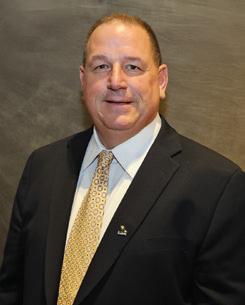





It is my pleasure to introduce this special pavement preservationthemed issue of “California Asphalt” magazine, the journal of the California Asphalt Pavement Association. As regular readers of this publication know, asphalt covers 94 % of paved surfaces in California, and preserving and protecting that valuable asset is of critical importance to all pavement owners.
This issue features an exclusive interview with a noted pavement preservation champion, longtime Caltrans official Tony Tavares, who recently left the department to become executive director of the Alameda County Transportation Commission. Tony came up through the ranks at Caltrans via the Division of Maintenance, before ultimately being appointed by the governor in 2022 as Caltrans director, so he knows first-hand the importance of extending the life of asphalt pavements. He’s also a champion of collaborating with our industry to share knowledge and best practices to ensure the taxpayer and transportation system user receive maximum value for their investments in our vital pavement infrastructure. Our Q&A with Tony contains insight you won’t find anywhere else.
This issue also features a report about an impressive program launched by California State University, Chico, to educate the next generation of engineers and project managers about asphalt. CalAPA has long supported the work of CSU Chico and its Pavement Preservation Center, which is celebrating its 20th anniversary this year. The company I work for, Ergon Asphalt & Emulsions, has also been a proud supporter of the work of the Pavement Preservation Center, and I was pleased to join Tony Tavares on the Chico campus for various events over the years.
Once again this year, CalAPA sponsored the CSU Chico asphalt technology summer workshop, which brought together bright students from numerous California community colleges and universities to learn about asphalt technology, standards and best practices. CalAPA’s Technical Director, Brandon Milar, P.E., was one of the summer workshop presenters, focusing on asphalt pavement mix design. This is another example of our association’s commitment to developing the next generation of leaders in our industry.
Finally, I’d like to highlight a report in this issue on our annual “Summit at the Summit” Executive Leadership Forum, which took place June 17-19 at the Hyatt Regency Resort in Incline Village, NV. The program, initiated by our Board of Directors, was our most impressive yet, with a stellar lineup of subject-matter experts providing valuable intelligence on trends, threats and opportunities for our industry. There was also plenty of time for power networking and fun. Our special thanks go out to all the event sponsors for making this amazing and family-friendly event possible.
By now you can tell there is a consistent theme here: Investing in the future. Our association is dedicated to focusing on the education of the future generation of roadway managers, designer engineers and pavement practitioners in California. One of the key pillars is a robust flexible asphalt Pavement Preservation program utilizing many asphalts based pavement preservation techniques, thus creating a fiscally responsible and sustainable future for, as we say on our website, “All Things Asphalt.” Thanks to the generous support and engagement of CalAPA members, important work is being done to ensure a bright future for our companies, our agency partners, and the communities where we live and work.
Sincerely,

Scott Metcalf
Ergon Asphalt & Emulsions Inc. (& 2025 CalAPA Chairman)
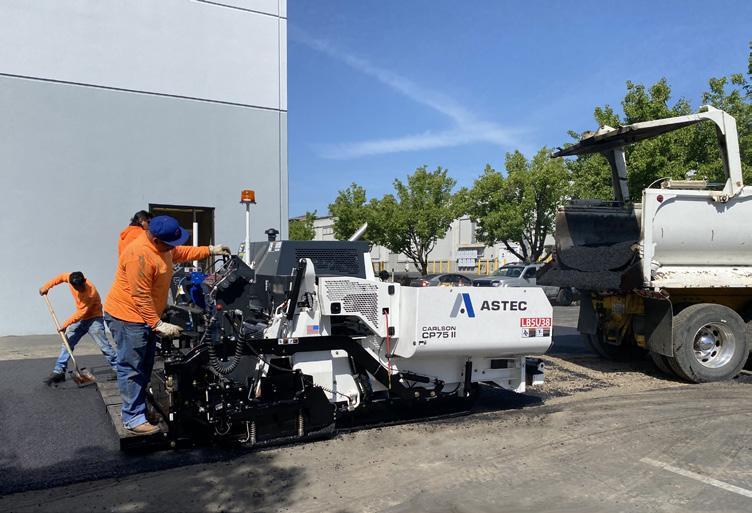

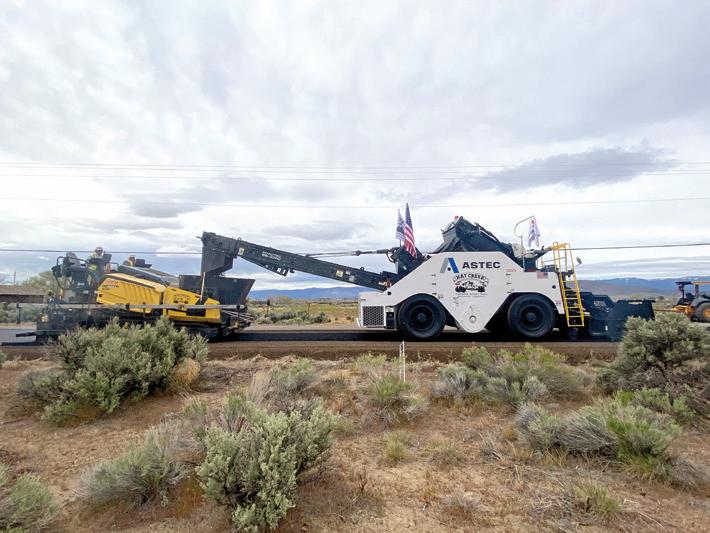
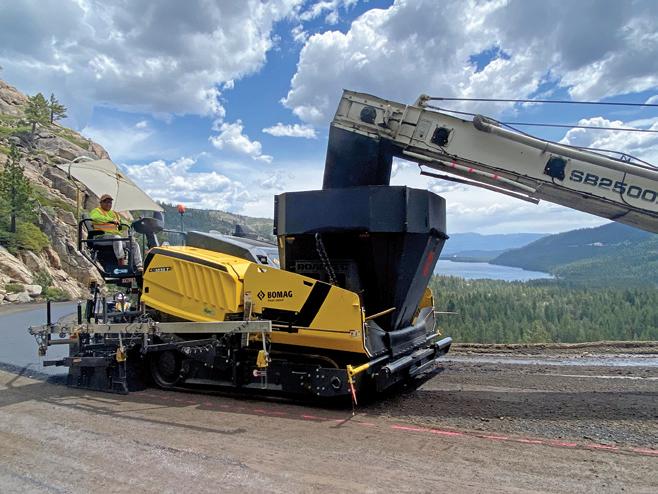
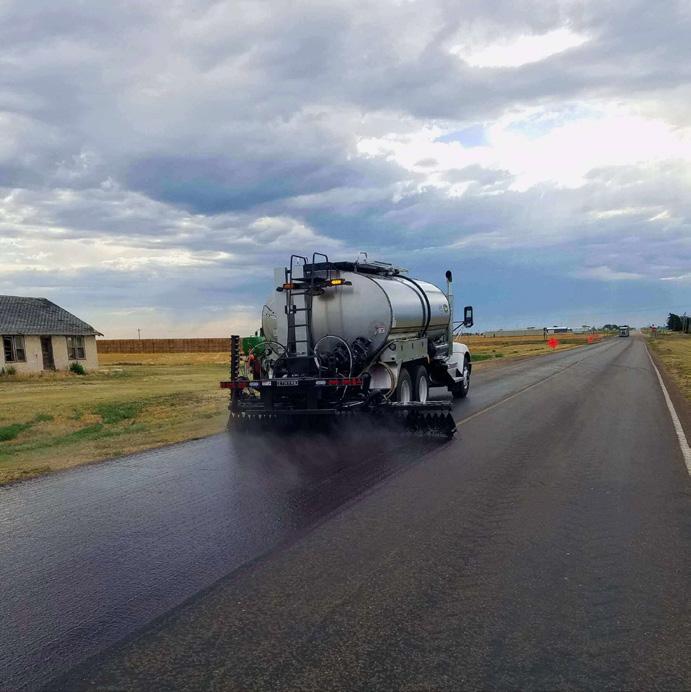
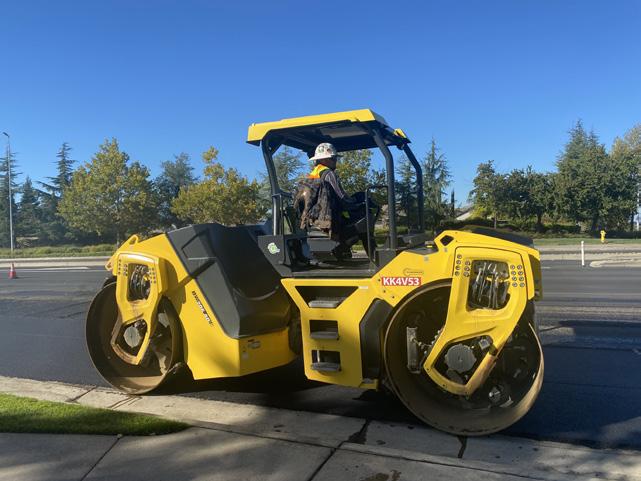
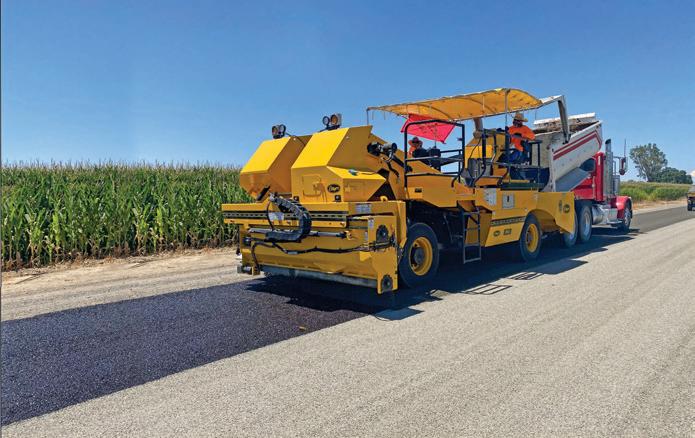
CSU Chico Summer Asphalt workshop
CalAPA members support CSU Chico Summer asphalt workshop for promising students

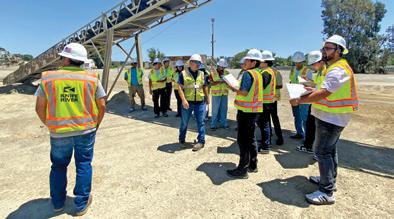
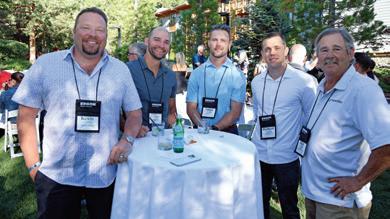
2025
Scott Metcalf (Chairman) Ergon Asphalt & Emulsions
Frank Costa (Vice Chair) Martin Marietta
Scott Bottomley (Treasurer) Sully-Miller / Blue Diamond Materials
Chris Gerber (Secretary) G3 Quality
Jeff Benedict (Immediate past chair) Valero Energy
Ron Criss Hat Creek Construction
Tim Denlay Knife River
Chris Handley Tullis
On the Cover: Cover illustration by Aldo Myftari, Construction Marketing Services, LLC. THE CALIFORNIA ASPHALT PAVEMENT ASSOCIATION www.calapa.net
Robert Jarvis
Century Paving
Kevin Jeffers Albina
Kody King Mercer-Fraser
Pete Lambert McGuire & Hester
Jeremiah Lemons CRH
Phil Reader Reed Family Companies
Eric Richard Reed & Graham
Steve Ward Pavement Recycling Systems
HEADQUARTERS: P.O. Box 981300 • West Sacramento • CA 95798 (Mailing Address) 1550 Harbor Blvd., Suite 120 • West Sacramento • CA 95691 • (916) 791-5044
EXECUTIVE DIRECTOR: Russell W. Snyder, CAE, rsnyder@calapa.net
TECHNICAL DIRECTOR: Brandon M. Milar, P.E., bmilar@calapa.net
MEMBER SERVICES MANAGER: Sophie You, syou@calapa.net
MEMBER SERVICE COORDINATOR: Jackie Henry, jhenry@calapa.net
GUEST PUBLISHER: Scott Metcalf, Ergon Asphalt & Emulsions Inc. (& 2025 CalAPA Chairman)
PUBLISHED BY: Construction Marketing Services, LLC • (909) 772-3121 P.O. Box 892977 • Temecula • CA 92589
GRAPHIC DESIGN: Aldo Myftari
CONTRIBUTING WRITERS: Russell W. Snyder, CAE, CalAPA
ADVERTISING SALES: Kerry Hoover, CMS, (909) 772-3121
Copyright © 2025 – All Rights Reserved. No portion of this publication may be reused in any form without prior permission of the California Asphalt Pavement Association. California Asphalt is the official publication of the California Asphalt Pavement Association. This bimonthly magazine distributes to members of the California Asphalt Pavement Association; contractors; construction material producers; Federal, State and Local Government Officials; and others interested in asphalt pavements in California and gaining exclusive insight about the issues, trends and people that are shaping the future of the industry.
Would you like to share a comment or provide feedback?
Please visit the link below or scan the QR Code. https://www.calapa.net/contact-us.html

Over 100 di erent asphalt products and grades of material available
Rigorous in-house testing procedures ensure consistent quality
Value-added service at every step, from product selection to application
Full-service transportation solutions across the Paci c Northwest
A proactive approach to safety and environmental protection
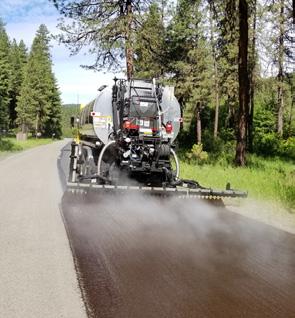


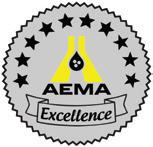
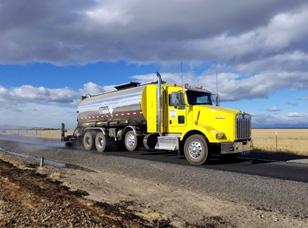
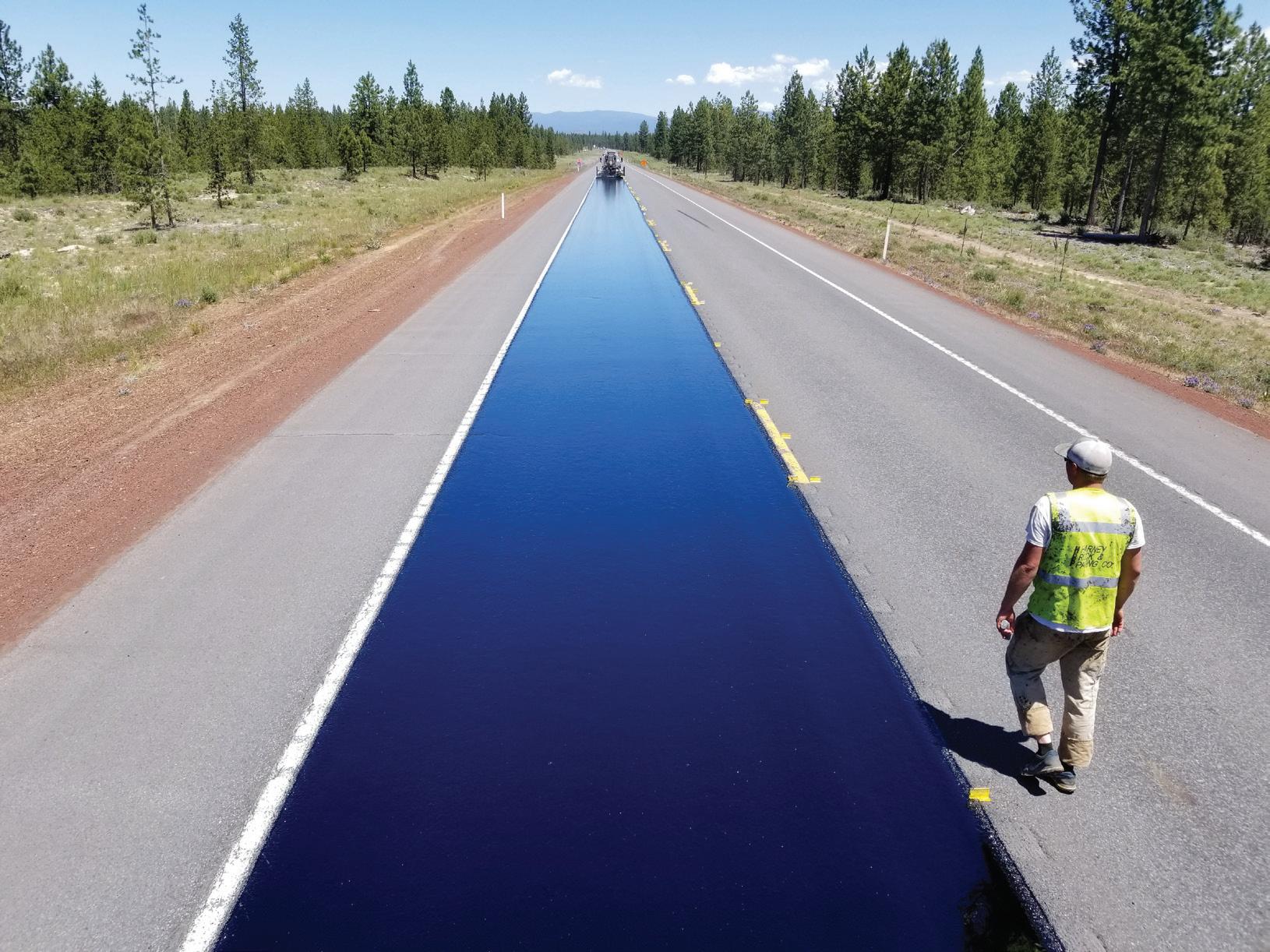


By Russell W. Snyder
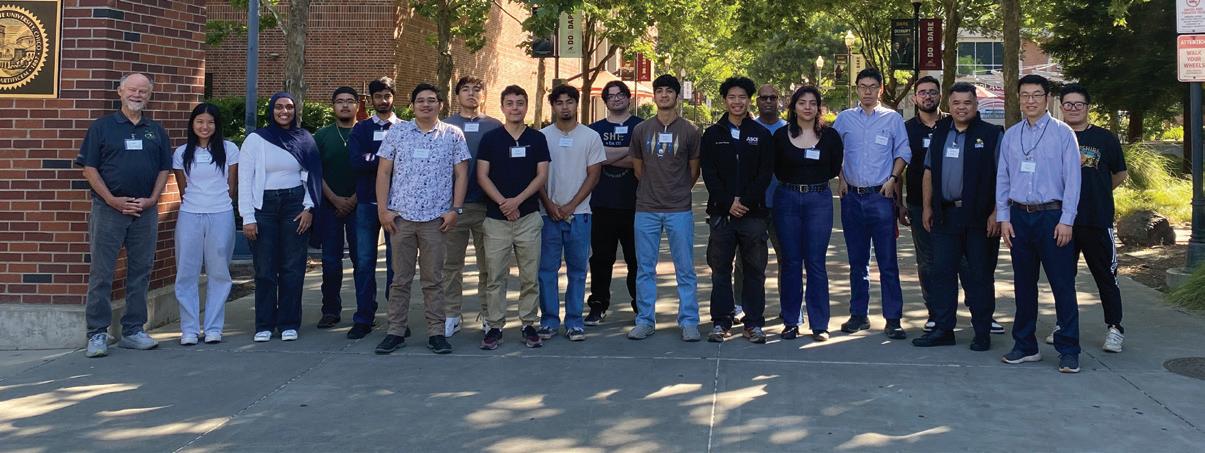
The strategic plan for the California Asphalt Pavement Association includes several goals related to recruiting, developing and retaining a qualified workforce for the asphalt pavement industry in California. But beyond just lofty goals, the association and its dedicated members are putting focused action behind those goals that are already achieving tangible results.
Perhaps most prominent is the establishment of a people-centric charity, the California Asphalt Research & Education (CARE) Foundation, recognized by the U.S. Internal Revenue Service, to support worker recruitment and development activities.
The Women of Asphalt California Branch has been one of the early beneficiaries of the CARE Foundation support, putting on several educational programs to
elevate and inspire women in the industry, as well as our agency partners.
Another essential component of the CalAPA and CARE Foundation workforce recruitment initiative is to help spread the word about the many diverse, satisfying and rewarding career paths in the asphalt industry, and helping people access them. High School career days and college technical programs are just a few of the opportunities available to raise awareness of our industry and illuminate pathways to successful asphalt industry careers.
One of those industry-academia connecting points is in the form of the annual Summer workshop on asphalt technology held for the past five years on the campus of California State University, Chico.
The three-day asphalt workshop consists of technical
lectures on state-of-the-practice of asphalt technology, pavement materials, materials testing and pavement preservation technology. This year’s program, held June 1719, attracted students from across California as well as other states.
Dr. Kun Zhang, CSU professor and lead organizer of the program, thanked the primary sponsor, the American Public Works Association, as well as local sponsors CalAPA, MCK Services, Knife River, City of Chico, Ingevity, Dokken Engineering, and the Association of Asphalt Pavement Technologists (AAPT) chapter at the University of Nevada, Reno.
"Workshop attendees completed a total of 10 tests on aggregates, asphalt binders, and asphalt mixtures in three days," Zhang said. "We patched five potholes using a pothole patching mix developed at Chico State,
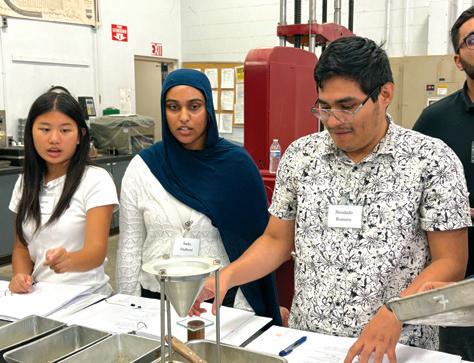
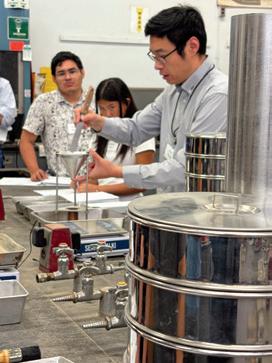
Above:
using 100% RAP (Reclaimed Asphalt Pavement) and used cooking oil. We also had an asphalt plant tour in Chico hosted by Knife River Construction."
CalAPA Technical Director Brandon Milar, P.E., delivered a presentation at the workshop on asphalt mix design, and Mimi Le with MCK Services and a member of the Board of Trustees of CalAPA's CARE Foundation charity, delivered a presentation on Women of Asphalt California Branch activities, as well as asphalt recycling technologies. CalAPA also sponsored a lunch during the workshop.
"I was thrilled to see Dr. Kun Zhang put together such an outstanding program for young professionals and students," Le said. "I was especially surprised and impressed to see a high school student from Chico participating. We also had a number of students express interest in the asphalt engineering competition we are developing, which was great to see."
Left: Chico State Professor Zhang demonstrates to the students how to perform a test to determine the fine aggregate angularity of a sample. (L to R) Jhosdado Romero (UC Davis), Lilianne Tao (Chico High School), Professor Kun Zhang (CSU Chico).
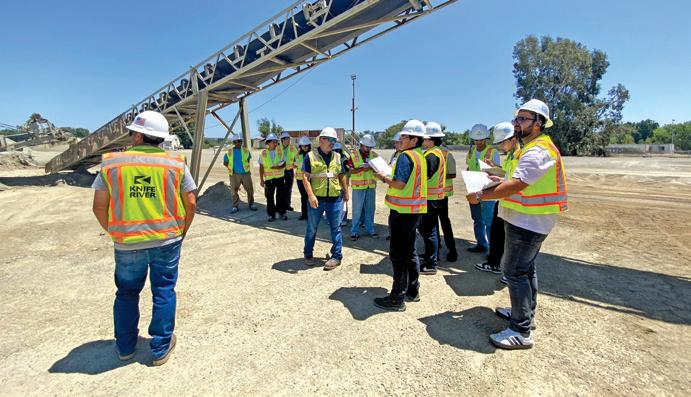
Le said one student, a Chico mechanics engineering major, expressed interest after the workshop in possibly changing majors to civil engineering to pursue that career path.
Students who attended the workshop hailed from Chico as well as UC Davis, Yuba Community College, California State University, Northridge, Butte-Glenn Community College, Cal Poly Pomona, CSU Chico and Chico High School. Other attendees who came from outside California included students from Washington State University and the University of Nevada, Reno.
“This was a great opportunity for the students to interact with experienced engineering professionals,” CalAPA’s Milar said. “Students were able to meet with seasoned engineers like Rick Liptak, CEO of Dokken
Engineering, and Brendan Ottobani, Director of Public Works for the City of Chico, both licensed civil engineers. They shared the current state of practice and importance of our asphalt pavement infrastructure with the students. They also shared their insights into how students can kickstart their engineering careers.”
Milar said he appreciated the engagement by the workshop participants.
“I enjoyed interacting with the students at the workshop,” he said. “They had insightful questions on asphalt mixes and the asphalt industry. I look forward to participating in future events with Chico State and our future engineers.”
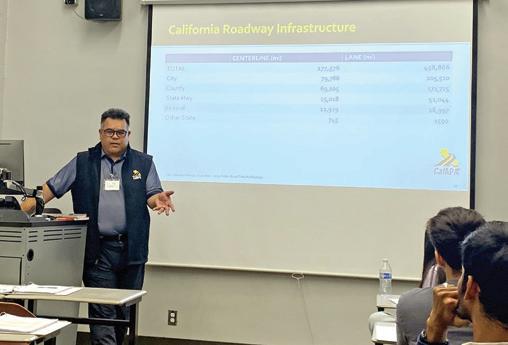
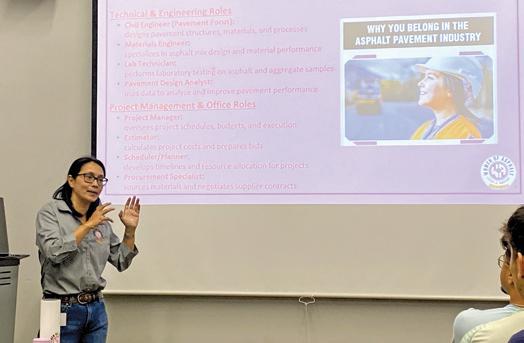
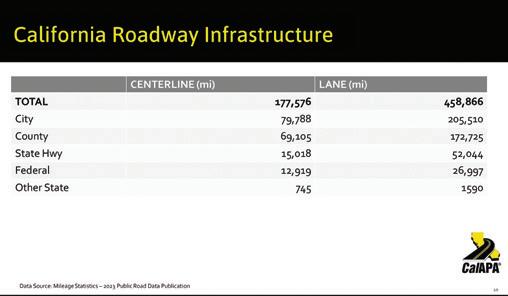
Above: Mimi Le with MCK Services shares information on the Women of Asphalt California chapter to the next generation of engineers. Le also provided in-depth knowledge on the state of practice for pavement improvement through recycling the existing pavement.
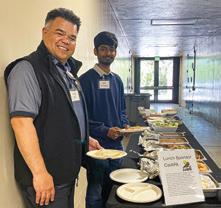
The tour of the Knife River Chico batch plant and AASHTO-accredited materials lab was conducted by Plant Manager Mason Richardson. Knife River has opened up its plant each year to the summer workshop participants since the program began five years ago.
“Knife River loves giving back to the local community, and any time we can participate in these types of events and programs we look forward to that opportunity,” Richardson said. “We work closely with Chico State, especially their engineering department and construction management department.”
Richardson said he was pleased with the level of interest by the students who toured the Knife River facility.
“There was a wide range of questions, from beginning questions to the more advanced. It is a group setting, and there was full participation by all the students. We got to bring over our working foremen who work on equipment daily, to provide additional handson perspective.”
Richardson said he was pleased to contribute to the program as a way to invest in the future workforce of the industry.
“Helping with the Chico State Summer asphalt program has been an enjoyable and rewarding experience,” he said. “The students were really engaged, which was very inspiring to us. The program does a great job blending classroom, lab and field studies. I would encourage anyone interested in
entering the asphalt industry to participate in the program.”
The successful workshop comes as the CSU Chico campus marks the 20th Anniversary of the Pavement Preservation Center, which is supported by the California Department of Transportation (Caltrans) as well as the asphalt pavement industry.
Plans are in the works to hold the asphalt workshop again next summer, CSU Chico’s Zhang says. For those interested in participating or supporting the event, they can contact Zhang at: kzhang2@csuchico.edu . CA
Russell W. Snyder, CAE, is executive director of the California Asphalt Pavement Association (CalAPA).
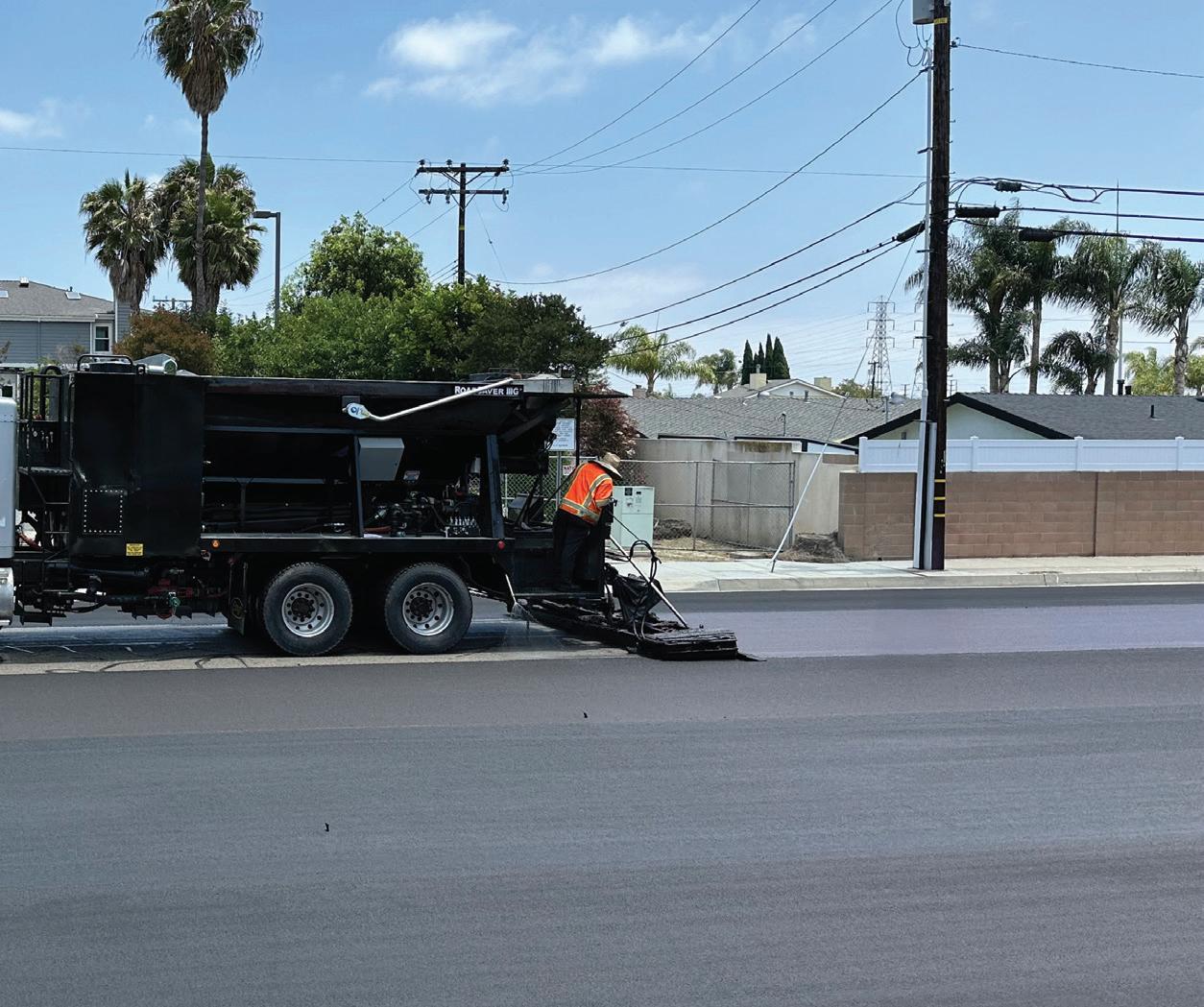
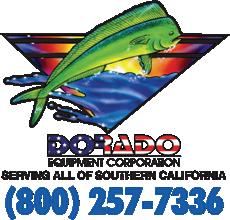
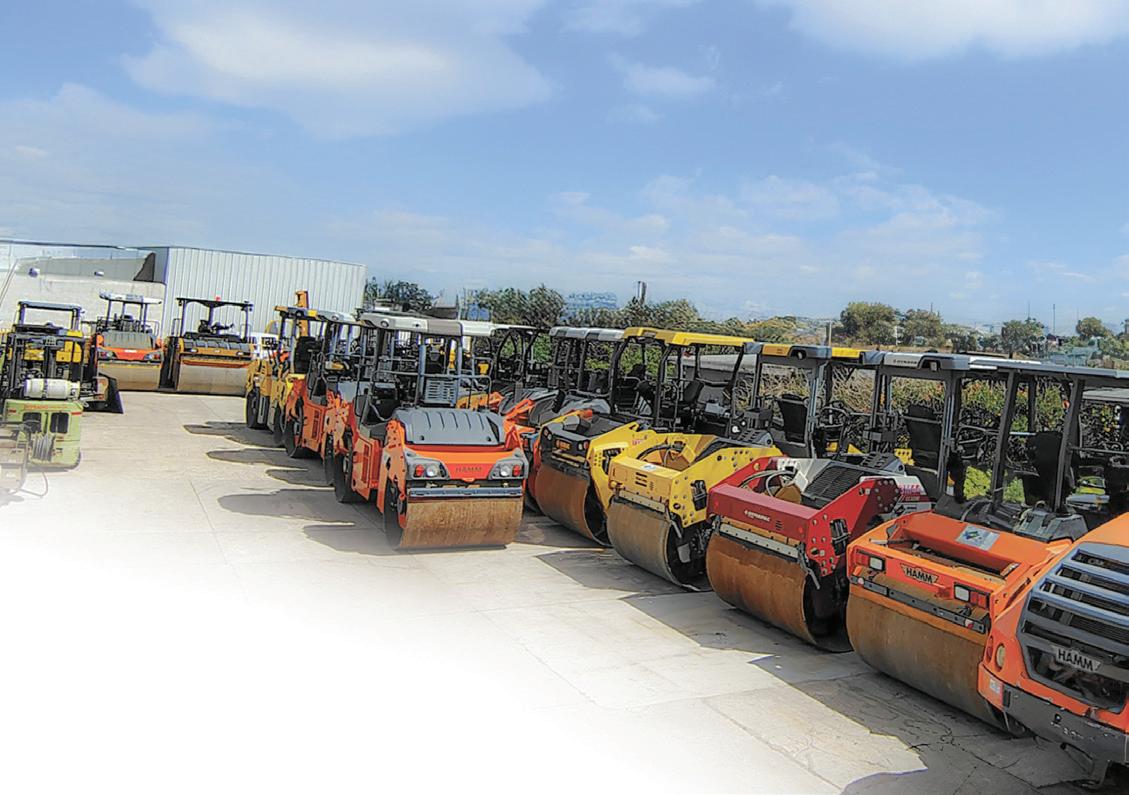



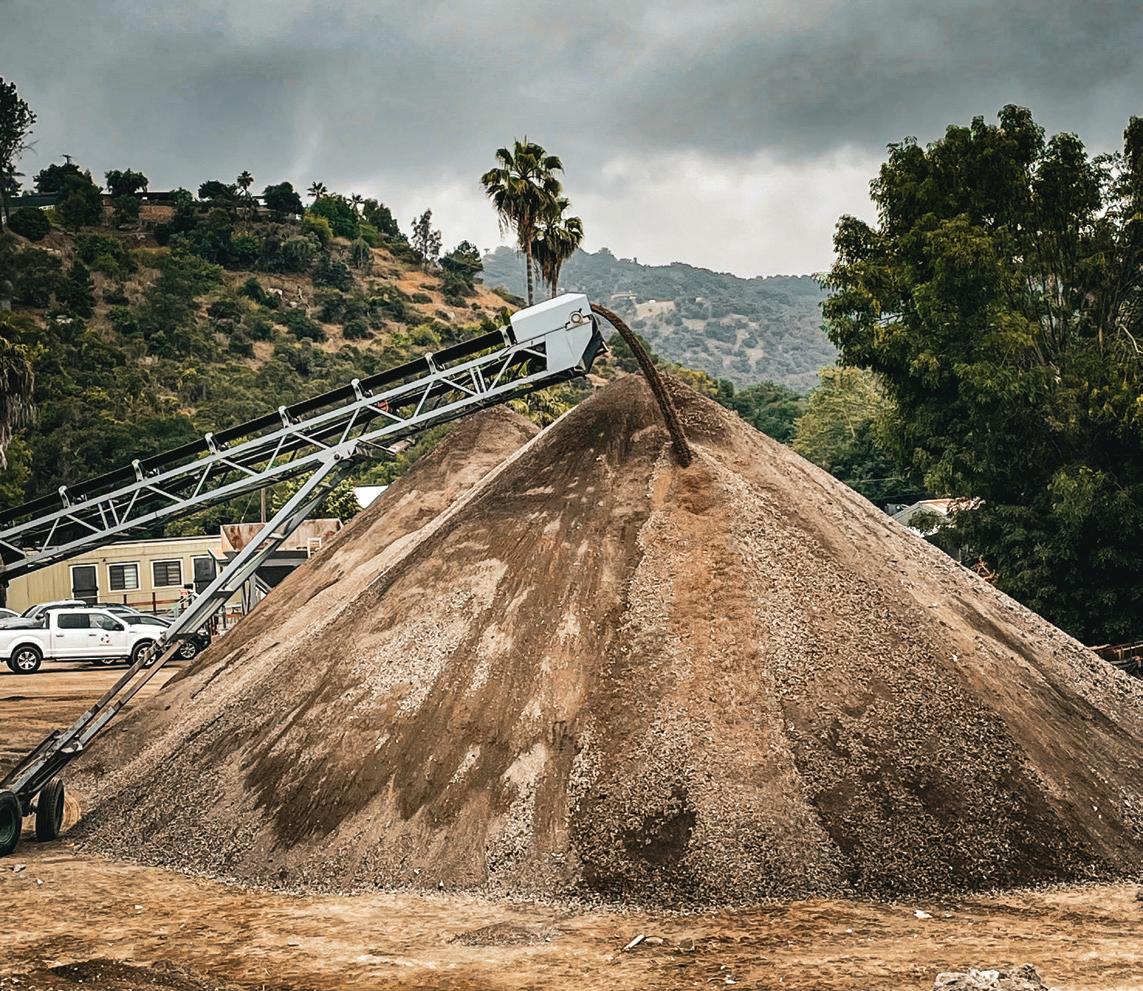
By Russell W. Snyder
Editor’s Note:
After a distinguished three-decade career at the California Department of Transportation (Caltrans), including serving as the department’s 34th director, Tony Tavares left the department to become the executive director of the Alameda County Transportation Commission effective June 1. During his time at Caltrans he oversaw the department’s maintenance programs, and later was the only person to serve separately as district director for District 4 (San Francisco Bay Area) and District 7 (Los Angeles and Ventura counties). When he ascended to the top position at Caltrans in 2022 he was in charge of 20,000 employees and a $20 billion annual transportation program, including overseeing a 58,000 mile highway network and more than 13,000 bridges and other structures. One of his signature achievements was helping guide the delivery of transportation improvement projects on the state highway system funded by SB1, the $50 billion Road Repair & Accountability Act of 2017, which raised fuel taxes to pay for road and bridge repairs statewide. While at Caltrans he also accepted, on behalf of the department, a special “Pavement Pioneer” award in 2010 in recognition of the department’s deployment of long-life (perpetual) asphalt pavement design strategies, presented to him at a CalAPA Conference in Sacramento by Mike Acott, then CEO of the National Asphalt Pavement Association. In his new job, Tavares, will be
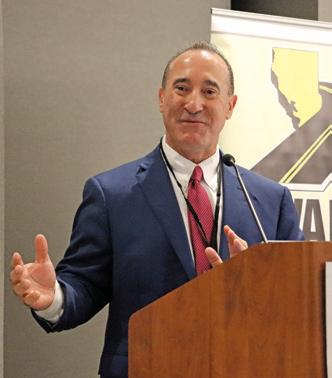
managing an agency with a current annual budget of almost $740 million that is responsible for delivering major transportation improvement projects for roadways, transit, bike and pedestrian facilities, improvements in mobility, modernizing express lane operations and electronic toll systems, engaging stakeholders and overseeing administration, finance and public affairs. This includes implementation of the Alameda CTC’s Comprehensive Investment Plan, which includes Measure BB investments. The Alameda CTC is governed by a 22-member commission, which manages the county’s 1-cent transportation sales tax and serves as the county’s congestion management agency. Tavares, 58, a Bay Area native, is a graduate of the University of California, Davis, with an engineering
degree and is a licensed civil engineer in California. He sat down recently with “California Asphalt” magazine to discuss his time at Caltrans and what lies ahead for him in his new job in Alameda County.
California Asphalt Magazine: Congratulations on the new job, and thanks for taking the time to speak with us. This is kind of an exit interview, since you only departed Caltrans in May, as well as a look ahead at your new job.
Tony Tavares: I appreciate the opportunity to speak with you.
CAM: Maybe we should start with a look back at your time at Caltrans. As a former Caltrans executive manager myself, I know that you never really leave the department, but rather take that experience and perspective with you to your new job. Other former Caltrans directors, namely Will Kempton and Randy Iwasaki, who also have been interviewed by this publication, have taken over at local transportation agencies after their time at the Department. So that seems like a logical place to start.
TT: I’m proud of my 35-plus year career that I had with the department. I had the opportunity to work in many different roles, and got to meet and know many great people. I got to know you when I was Maintenance Division Chief, and we had a lot of successes there where we continued to
improve the collaboration and the partnership between Caltrans and industry, and to me that’s real important. Because at Caltrans, or any agency, when it comes to delivering projects, we can’t do it by ourselves. We need industry to walk alongside us and ensure that not only the agency is going to be successful, but also the industry partners who bid on these contracts to be successful. We don’t want to see anyone fail.
CAM: Or, “Failure is not an option,”as legendary NASA Flight Director Gene Kranz once said.
TT: Right. I definitely don’t want to see anyone fail. I like to think one of my achievements, one of the areas I feel most proud of, is that we had the ability to enhance and strengthen that partnership, that trust, between Caltrans and the industry groups out there, in asphalt, but also in other areas as well, and continue to enhance that trust and partnership. I’m proud of that.
CAM: After all, projects are more than asphalt and concrete, rebar and wood. They are also about the people who build and maintain them, and the taxpayers who pay for them, and the traveling public that ultimately benefits from them.
TT: Exactly. As a Caltrans director, that was one of my leadership visions for my entire team throughout the state, to continue looking at not only the projects that we deliver but really how those projects impact people in general, and that also means the people who work on projects.
CAM: “People-centric,” as you have said many times. It is also one of the stated core values of Caltrans.
TT: Yes. And that comes back to industry, our contractors, our materials suppliers, our academia
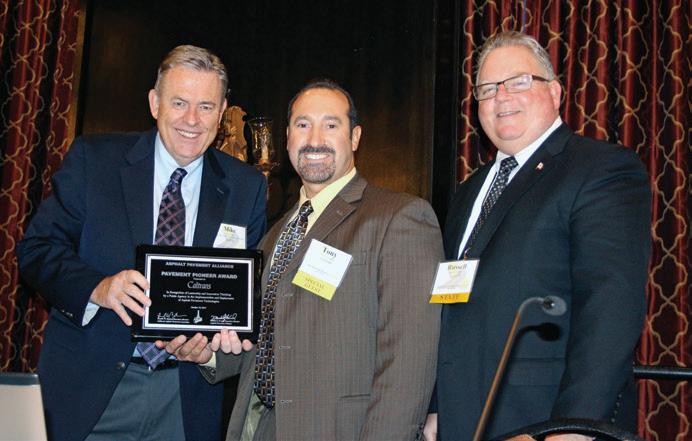
folks who help with that as well — just everyone ensuring that we are being transparent, we are being open and honest, that we are building trust, so that we continue to have that good working relationship.
CAM: Part of that partnership is often doing things in a new or different way. Change is scary, and that can sometime cause friction, but also can lead to breakthroughs and successful outcomes.
TT: Industry, many times, is ahead of the curve as far as knowing the latest techniques, the latest processes, in developing projects and developing types of materials being used, so it really behooves a large agency like Caltrans to listen and lean in on those conversations, and to also implement some of those strategies, even if we do it as a demonstration project, or a pilot project. But at least try it, let’s evaluate it, and see how it works in California. I’m proud that our team continues to lean in and move in that direction at Caltrans.
CAM: So that brings us to your new job, which is a bit of a homecoming for you, isn’t it?
TT: Yes. Looking at this next chapter in my career, the Bay Area is very near and dear to my heart. Most of my family is from the Bay Area. My parents lived here. I was born here, my sister was born here, and all my aunts, uncles, cousins, grandparents, they are all from the Alameda County area. So this is a great opportunity to be able to go back to the county where my roots are really from, and where I still have a considerable amount of family members, and extended family members.
CAM: The work that you will be doing will directly impact your family. No pressure there!
TT: (Laughs) Yes. But I look at it as an opportunity to dig in deeper on ensuring that we are delivering projects that meet the needs of all the people who live and work, and commute through, Alameda County. So I’m excited about these opportunities that lie ahead.




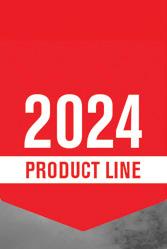




[ Continued from page 16 ]
CAM: Earlier I mentioned one of our mutual colleagues, Randy Iwasaki, a former Caltrans director, who followed a similar path as you through Maintenance and later headed up the transportation programs in Contra Costa County. In an interview with this magazine, he talked about wanting to be the owner of choice, to be easy to do business with, to attract as many high-quality contractors to bid on his work.
TT: I appreciate you saying that. Absolutely. Randy has been a mentor to me over the years, and it’s almost like I’m following in his footsteps. He was director, and then went to Contra Costa County, and now I was director and now I’m going over to Alameda County, a neighboring county. But yes, we totally have the same sentiment. I want to deliver good projects, I want to be fair to our contracting partners out there, and resolve issues as quickly as possible. I have an open door policy, so any project that they are working on, if they have concerns or issues, they can reach out to me directly and I will get personally involved to resolve anything that’s outstanding. But I definitely want to have a great relationship with our contracting community, and our materials industry, to ensure that we are that agency that they want to do business with because they know they will be treated fairly and they are going to have that opportunity to make that profit that they so desire and that they honestly deserve.
CAM: Since we are on the subject of your local program in Alameda County, can you speak to what that looks like? We are especially interested in the pavement assets in the county, and your philosophy to help keep them in a state of good repair. Please share what your role will be in this area.
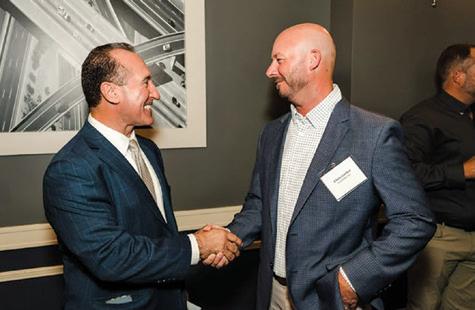
TT: We have a very robust suite of projects and programs to address our physical infrastructure in Alameda County. Measure BB has established over $4 billion to address our physical infrastructure, including pavement and bridges. Through our direct local distributions to cities, recipients, Measure BB has set aside $1.6 billion for the maintenance of local streets and roads. To ensure the accountability of those funds, Alameda CTC established a PCI performance measure of 60 or greater for each recipient to ensure our pavement is maintained in a state of good condition.
CAM: We remind our readers that PCI stands for Pavement Condition Index, a widely used pavement metric.
TT: Alameda County’s recipients are doing very well in meeting and exceeding this performance measure. However, we have also noticed as overall project costs continue to increase, the ability to meet this performance measure is becoming more difficult. Alameda CTC and its recipients can benefit from the strong partnership with CalAPA and its members to identify innovative and cost effective methods to maintain and rehabilitate our pavement infrastructure. We look forward to further discussions and collaboration with you.
CAM: What else is funded by those local funds?
Caltrans Director Tony Tavares (left) chats with CalAPA Board
Secretary Chris Gerber, president of G3 Quality, at a Bay Area event in 2022.
TT: In addition to our direct local distributions, Measure BB established a list of about $2.5 billion of capital improvement projects to enhance and improve our pavement, bridges and other infrastructure. On average, Alameda CTC delivers over $400 Million of capital projects annually.
CAM: All of those projects have a direct impact on the quality of life of people. Saying you are committed to being “peoplecentric” sounds good, but it is a meaningless slogan unless backed up by action. In the case of an executive, that means your time and attention. Your career has been marked by successful outcomes that were the focus of your time and attention, and support. Training is one. Specification development is another. Collaboration between Caltrans and industry has led to successful outcomes that benefitted all parties.
TT: I appreciate you bringing that up. I really do. I especially value the collaboration, the inclusivity with industry. Bringing in both Caltrans and industry people, training them together, sitting side-by-side, learning together, sharing ideas and thoughts in those training classes. I think that is so important.
CAM: Collaboration is one of the core values of Caltrans in the department’s current strategic plan. It states, “We inspire and motivate one another through
effective communication, teamwork, transparency, and partnership.”
TT: It’s important that we’re not in this old-fashioned way of looking at things, like the mindset that there’s the owner, and then there’s the contractor, and it is an adversarial role. We don’t need to be in that mindset anymore. We need to work together. We both want to achieve the same outcomes, so let’s work together to get there. I think it is great what your industry, what you have done, to help move that forward.
CAM: Collaboration is also one of the core values in our association’s strategic plan. Also, elevating our workforce and that of our industry partners. A rising tide lifts all boats, so to speak. When we work together, help each other, learn from each other, everyone wins. There are more and more examples of this happening all the time. Ensuring that our agency partners also succeed is explicitly stated in the CalAPA strategic plan.
TT: I look at the Women of Asphalt program as a great example of that. This is still a male-dominated industry. The more we can bring women and others into this industry, to ensure that to bring that diversity, bring that inclusivity, to ensure that everyone can understand what we are doing, be part of it, and prosper, is great. I think the Women of Asphalt is just a great program.
CAM: It is the only local chapter that we are aware of nationwide that has a state department of transportation official and an industry representative serving as co-chairs. Previously the industry co-chair was Cathrina Barros, chief of the Caltrans Office of Asphalt Pavement, and now it is Sarah Hartz, chief of the Caltrans Southern Regional Materials Lab. The Women of Asphalt California Branch activities, it should be
noted, are supported by CalAPA’s charity, the California Asphalt Research & Education (CARE) Foundation, which was created to support workforce recruitment and development.
TT: I’ve been totally supportive of the Women of Asphalt program.
CAM: CalAPA, a non-profit trade association, is governed by a board of directors. The CARE Foundation is governed by a Board of Trustees. Previously you were appointed by the governor to lead Caltrans, and reported to the governor’s Transportation Secretary. In your new job you report to a commission. How has that transition been?
TT: The dynamics are a bit different. I now have 22 bosses. It’s a 22-member commission. But I also compare it to Caltrans. Caltrans also had to report to the California Transportation Commission for all of our projects, and we had to go seek approval from the commission for all of our projects, funding of those projects, and also bring reports on those projects back to the commission for their input. That’s part of the accountability piece of SB1. So I’m somewhat relating the two, if you will. At Caltrans I still had a commission in the CTC that I had to work closely with and to obtain their approvals. In my new job, I’m just a little closer to these commissioners on the Alameda CTC. They are definitely my bosses, and they have unique wants and needs. What I feel I do well at is to balance all of those differences and similarities and ensure that we’re still moving the agency forward in the right direction.
CAM: We’ve touched a bit on collaboration, and in your previous job Caltrans embraced a formal partnering relationship with industry, which is a structured
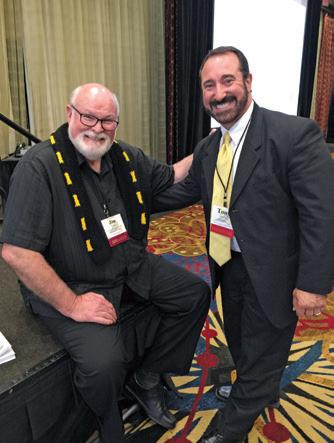
Tony Tavares (right) chats with state Sen. Jim Beall, D-San Jose, author of SB1, at the CalAPA Fall Asphalt Pavement Conference Oct. 26, 2017 in Sacramento.
way of problem-solving on construction projects that is designed to reduce claims and other conflicts by resolving issues at the lowest possible level. I was pleased to join you on stage last year in Sacramento for the department’s annual Excellence in Partnering Awards, where project teams from around the state were recognized for solving problems and building successful projects, often with amazing results. It is another tangible example of that collaboration you were talking about. This is especially true since the culture of Caltrans, and the culture of the construction industry, is just to keep our heads down and move on to the next project without taking time to recognize our successes.
TT: I think those partnering awards are extremely important. Again, it just builds that cohesive bond between Caltrans and the individual contractors, and it also, because we have teams from all the districts that come up for those awards, and they worked well with the contractor, and that’s why
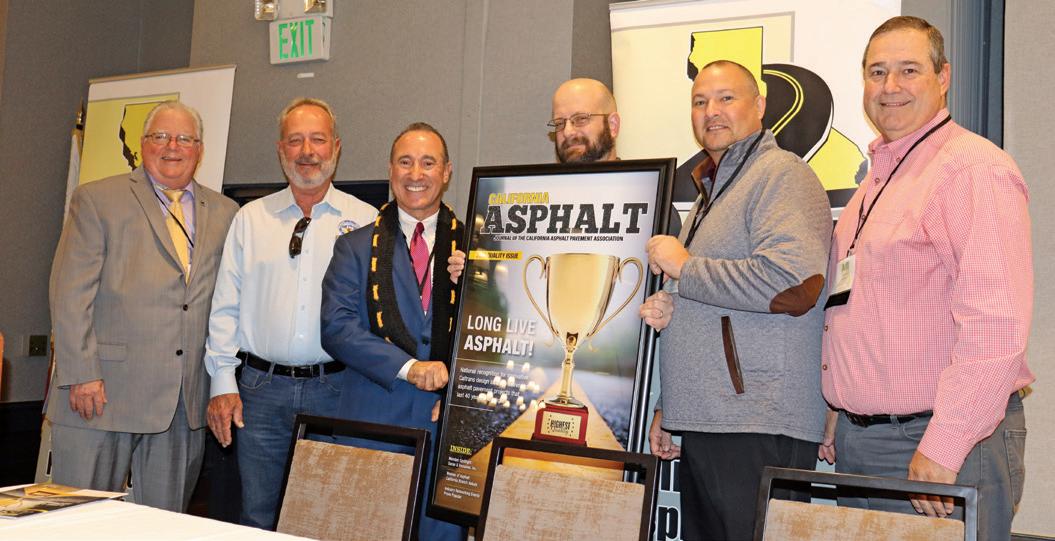
they are receiving those awards. It’s walking that walk, if you will, as far as showing that we’re not in an adversarial role. It’s not what Caltrans wants to be anymore. And definitely not what Alameda CTC wants to be, either. We want to be in a true partnership role. We have a similar role of delivering a good project to the public. Our contractors want that. We want that as an agency owner. It’s all about, How do we get there together? We understand there’s going to be some bumps along the way, but let’s work through those bumps, and continue to work things out, and continue to make forward progress. Those partnering awards just really exemplify the cream of the crop of projects across the state, and partnerships between industry and the agency on doing the right thing. I’m excited that we’re continuing that partnering program, and continuing to have those ceremonies where we can celebrate those teams.
CAM: Speaking of recognition, we noted in the introduction to this story that you accepted, on behalf of the department, a “Pavement Pioneer” award for the department’s work on advancing long-life (perpetual) asphalt pavement designs. Those designs are intended to last 40 or more years with minimal maintenance. Building on research by the University of California Pavement Research Center, the department has designed and built several successful long-life asphalt pavement projects across the state.
TT: I was thrilled to be able to accept that award on behalf of the department. At that time, the perpetual asphalt pavement concept, or long-life asphalt pavement, that was still a fairly new concept for us. And, early on, we weren’t sure about it. A large agency like Caltrans, with 20,000 employees, you have a lot of naysayers, right? Because they are used to, “That’s not how we’ve always done it.”
CAM: Those are fighting words!
TT: (Laughs). Right. But that’s where I get excited. Learning from industry, learning from the University of California Pavement Research Center, and others, do do things in a more innovative way. We also have learned from Chico State, which has their pavement preservation program.
CAM: That’s a nice plug for the CP2 Center at California State University, Chico, since this is the pavement preservation issue of our magazine. CalAPA has also been a longtime supporter that program.
TT: Right. I like learning and understanding about the new things that are out there. What could we do differently to be able to deliver a better product, work better with industry, and do these pilot projects? And I think that one, where we earned that award, was on a District 3 project that the team
[ Continued on page 22 ]
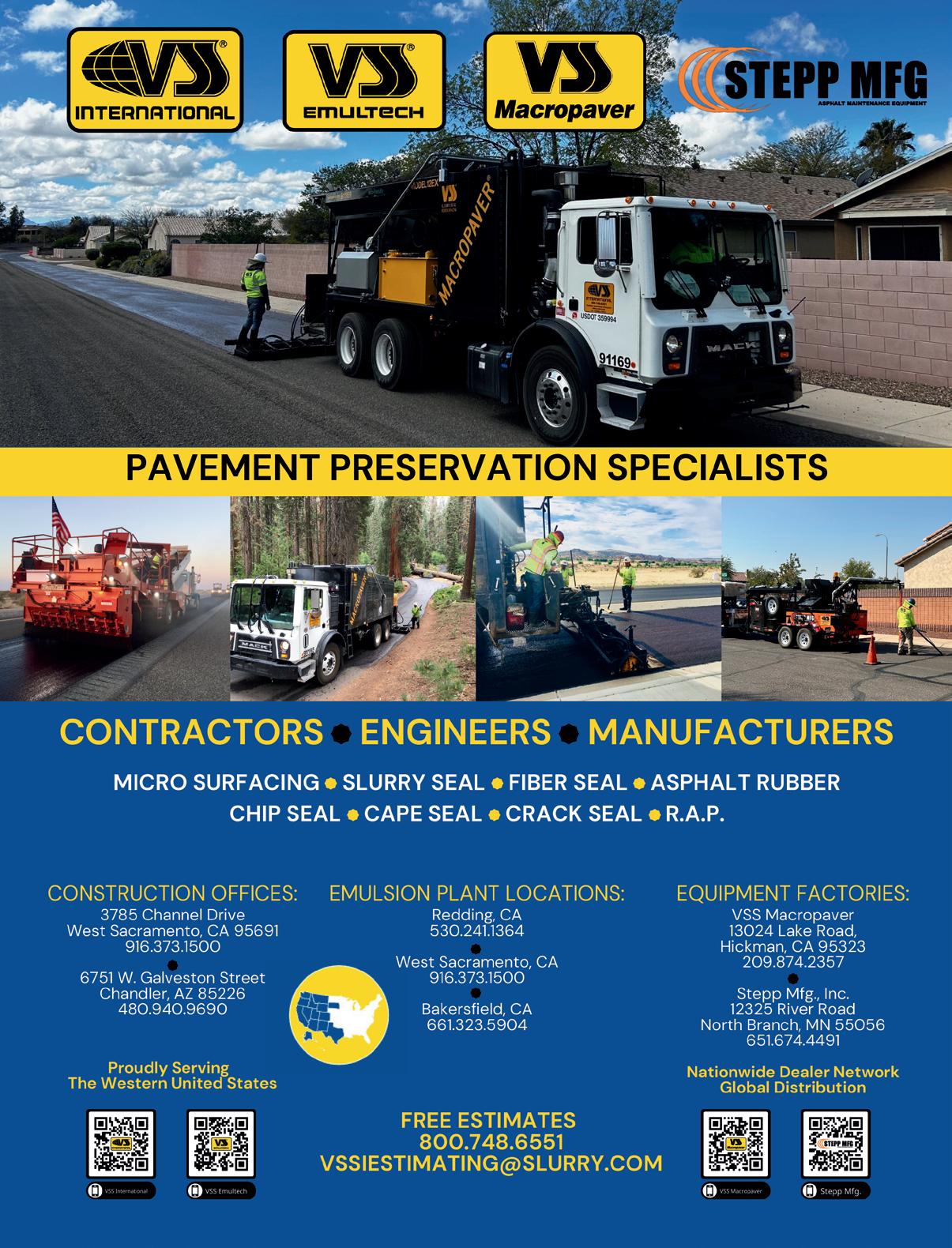
up there went forward with. We were going to demonstrate this, see how it works, how long it lasts, and evaluate it. And it’s been functioning very, very well from what I understand. So I just think we need to open ourselves up to more of this learning from industry because many times industry has some great, innovative ideas, and solutions, to delivering a better product at a better cost. Sometimes it might even be a higher cost initially, but once it becomes integrated into our daily standards the costs actually come down and you get a better product out of it. I hope Caltrans continues to stay open-minded, and continues to embrace innovation and what industry can bring to the table.
CAM: We’ve covered a lot of ground today. Is there anything else you want to add?
TT: We touched on it, but although I’ve stepped down and left Caltrans I’m still in the transportation world, and so I want industry to understand that I’m still here as a strong partner to them. I want our Alameda County Transportation Commission to be the owner of choice, and I want our industry partners to know that they can speak to me, that they can lean in, work with me, and we are going to be fair, we are going to continue to support innovation going forward. I’ve not left the industry. I’m continuing on, and want to do better.
CAM: We’re glad you’re still in our world, and we look forward to working with you. Besides, you know where the skeletons are buried! CA
Russell W. Snyder, CAE, is executive director of the California Asphalt Pavement Association (CalAPA).
Editor’s Note: On June 18, Gov. Gavin Newsom announced that he had appointed Dina A. El-Tawansy as the

permanent director of Caltrans, replacing Tony Tavares. El-Tawansy, a licensed civil engineer who holds degrees from Cal Poly Pomona and California State University, Long Beach, has in recent years held numerous executive management positions in the department. Prior to her promotion she was District 4 Director, which oversees the ninecounty San Francisco Bay Area region. She was scheduled to take the helm at Caltrans on July 1. In a statement to CalAPA shortly after the appointment, former Caltrans Director Tony Tavares said: "Dina El-Tawansy's appointment as Caltrans director is a tremendous milestone for California's transportation future. Dina brings not only deep experience and a commitment to innovation and equity, but also a proven track record of collaboration and partnership with communities, local agencies, industry, and all stakeholders. I have full confidence that under her leadership Caltrans will continue to deliver transformative projects that serve all Californians." Contacted via e-mail by CalAPA, she wrote: "I am deeply committed to advancing multimodal transportation solutions across the state of California through strong partnerships and with a clear focus on the people we serve. By working collaboratively across agencies, communities, and industries, we can build a transportation system that is inclusive, resilient, and truly responsive to the diverse needs of all Californians." In her note she added: "I look forward
to continue to strengthen the partnership between Caltrans and CalAPA!"
Snyder, R. (2024) “Q&A with Dr. DingXin Cheng, Ph.D., P.E., Director, California Pavement Preservation Center at CSU Chico.” California Asphalt, Journal of the California Asphalt Pavement Association, 2024 Pavement Preservation Issue, Vol. 28, Issue 3, PP 14-18.
https://issuu.com/calcontractor/ docs/cam_pavement_preservation_ issue_2024_-_issuu?fr=xKAE9_zU1NQ
Snyder, R. (2023) “Addressing the workforce challenge, thanks to leadership by the Women of Asphalt California Chapter (‘We got this’)” California Asphalt, Journal of the California Asphalt Pavement Association (CalAPA), 2023 Special Workforce Development Issue, Vol. 26, Issue 3, PP. 8-14.
https://issuu.com/calcontractor/ docs/cam_special_workforce_ development_issue_2023_-_ iss?fr=sNjdkODYwMTM5NTQ
Snyder, R. (2022) “Long Live Asphalt! National recognition for innovative Caltrans design strategy delivering asphalt pavement projects that last 40 years or longer.” California Asphalt, Journal of the California Asphalt Pavement Association, 2022 Quality Issue, Vol. 25, Issue 5, PP 8-14.
https://issuu.com/calcontractor/ docs/cam_quality_2022_-_ issuu?fr=sMDEyNzU0MTQ3MDE
Snyder, R. (2016) Q&A with Randy Iwasaki, executive director, Contra Costa Transportation Authority. California Asphalt, Journal of the California Asphalt Pavement Association (CalAPA), 2016 Innovation Issue, Vol. 20, Issue 3, PP 12-18.
https://issuu.com/calcontractor/docs/ cam_special_innovation_2016
Snyder, R. (2014) Q&A with Will Kempton, executive director, Transportation California. California Asphalt, Journal of the California Asphalt Pavement Association (CalAPA), 2014 Forecast Issue, Vol. 18, Issue 1, PP. 12-18.


































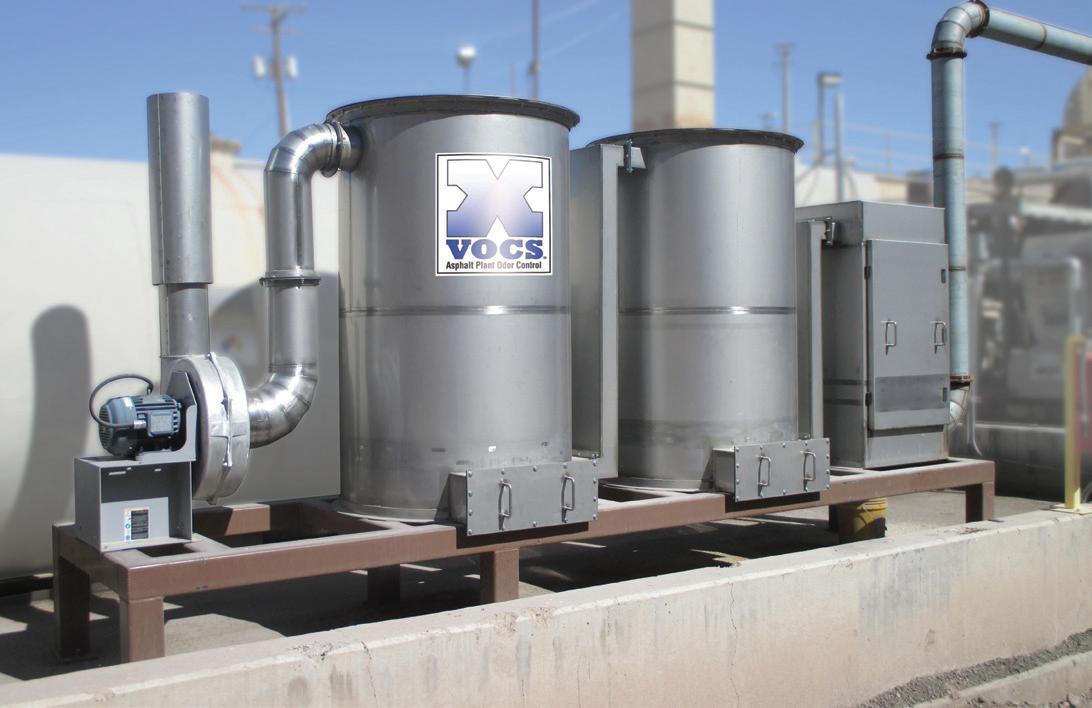
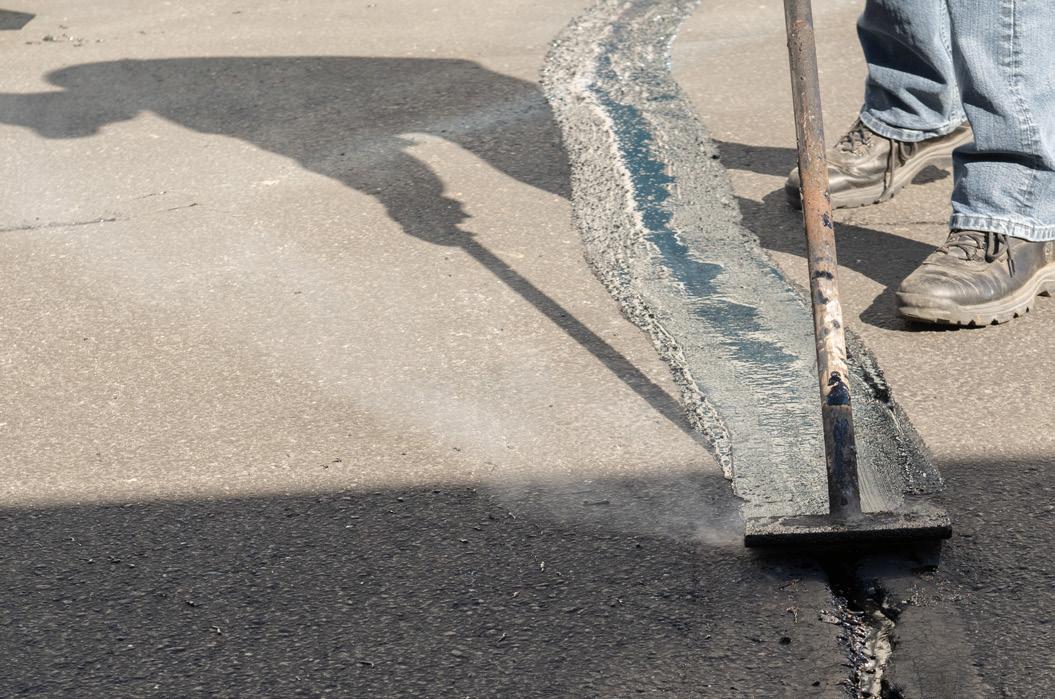

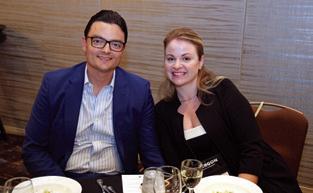
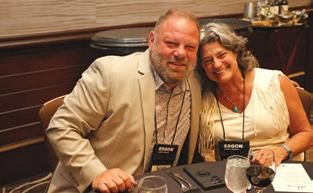

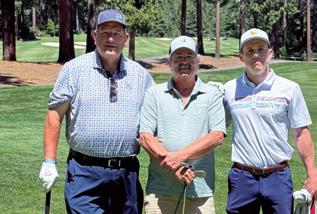
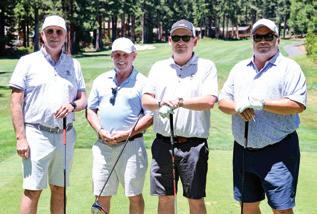

Asphalt Research & Education (CARE) Foundation, which has a workforcecentric mission, and inspiring activities by the indefatigable Women of Asphalt California Branch volunteers. CalAPA 2025 Chairman Scott Metcalf with Ergon Asphalt & Emulsions opened the forum with welcoming remarks, and sported an AC/DC hat, which he said stands for "Asphalt Concrete, Done Correctly." Vice Chair Frank Costa with Martin Marietta also opened Day 2 of the forum with a recounting of the great cookie caper that took place during the welcome reception.
A "Power Policy Panel" included leaders from CalAPA's highway effective policy committees: Scott Taylor with Taylor Environmental Services, and Scott Cohen with Sespe Consulting, co-chairs of the CalAPA Environmental Committee; Legislative Committee Chairman Steve Ward with Pavement Recycling Systems; Brian Handshoe,
president of Kenco Engineering and chairman of the CalAPA Political Action Committee; and Phil Reader with the Reed Family Companies, who is active on the CalAPA Technical Advisory Committee as well as the Caltrans-industry Pavement & Materials Partnering Committee. Ward and Reader are also members of the CalAPA Board of Directors. A meeting of the CalAPA Board of Directors was held in conjunction with the event.
The common theme throughout the panel discussion and other presentations was the importance of constant vigilance to advance industry interests and protect it from harm, something that has been central to CalAPA's mission since its founding in 1953.
The family-friendly event also included ample time for recreation, including a golf tournament at the Incline Village Championship Golf Course, karaoke and a gourmet
dinner with entertainment provided by comic Gina Stahl-Haven of "America's Got Talent" fame. Her ability to find humor in asphalt pavements kept the dinner crowd in stitches.
Cathrina Dmytrow kicked off the karaoke after-party, which surprised and amused attendees as much for singing bravery as well as surprising song selections (Scott Cohen rapping to Tone Loc?. Yes, that really happened.)
All registered attendees of the event were sent electronic copies of PowerPoint presentations delivered at the event, as well as other reference material.
Special thanks go out to the event sponsors: Albina Asphalt, CRH, Ergon Asphalt & Emulsions, Kenco Engineering, Inc., Martin Marietta, Mercer-Fraser Company, Pavement Recycling Systems, Sully-Miller Contracting Company, and Valero. CA



Dynapac's range of small and medium-size vibratory rollers are used to compact all types of soil. The rollers are suitable for most types of road construction, air elds, dam construction, harbor projects and industrial construction. Heavy-size vibratory rollers are used for a very wide range of applications. A special version with a padfoot drum (PD) is available for compacting cohesive soils.




























































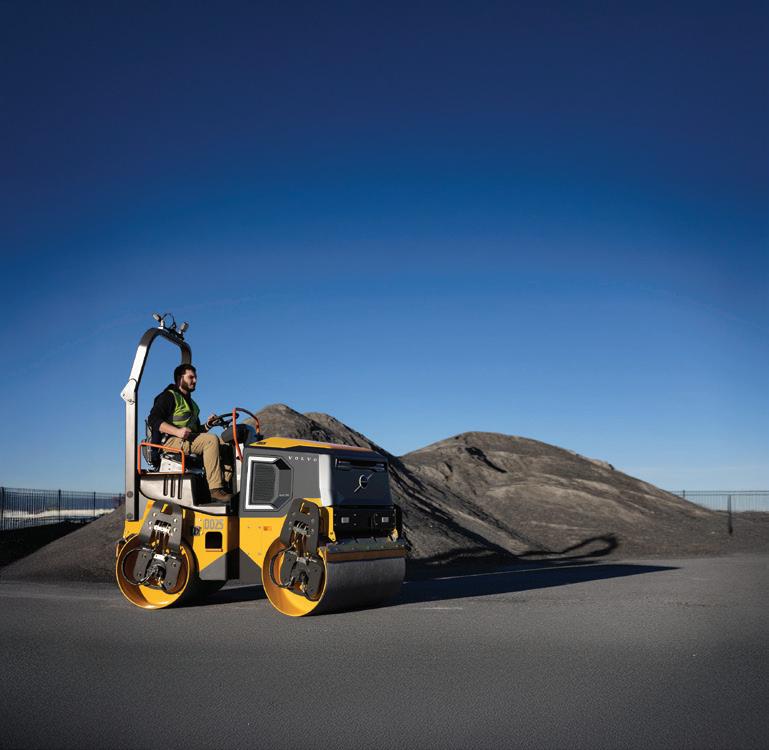




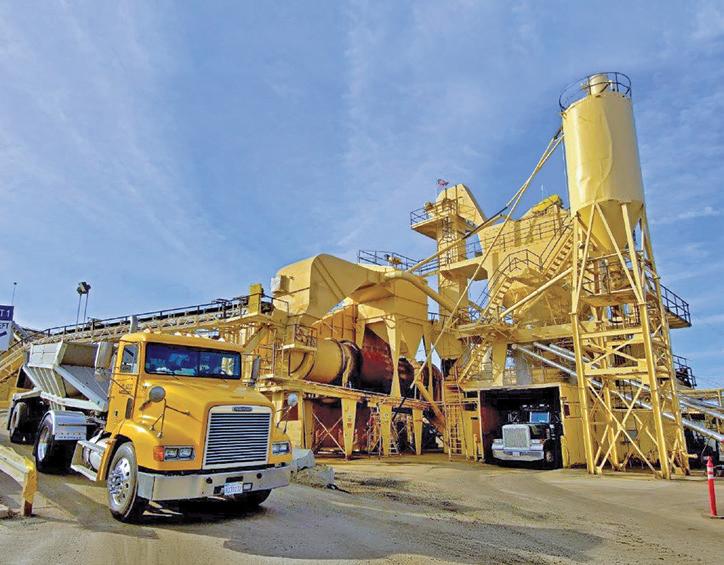
that "L.A. is blessed with many throwback restaurants; Dal Rae's savoir faire and exuberance distinguish it from the pack."
For information on other upcoming association events, visit the calendar page on the calapa.net website, or contact Sophie You at (916) 791-5044. CA
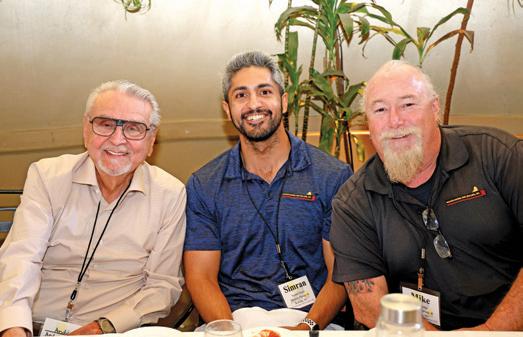
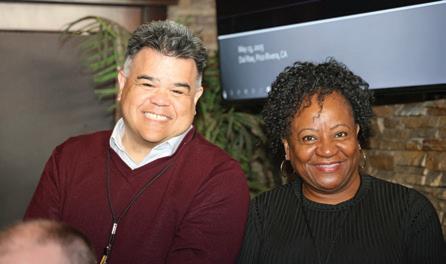
CalAPA’s Brandon Milar, Director of Technical Services and Jackie Henry, Member Services Coordinator were on hand to welcome members to the CalAPA contractors dinner held on May 13
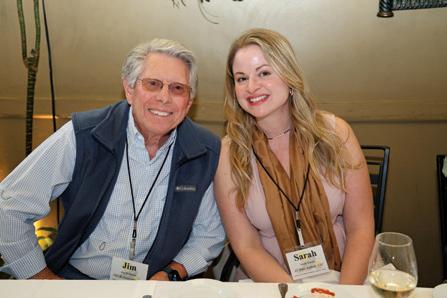
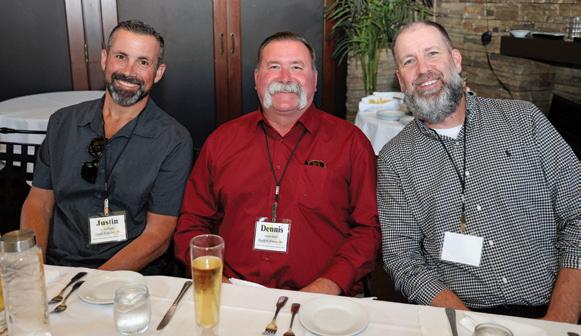
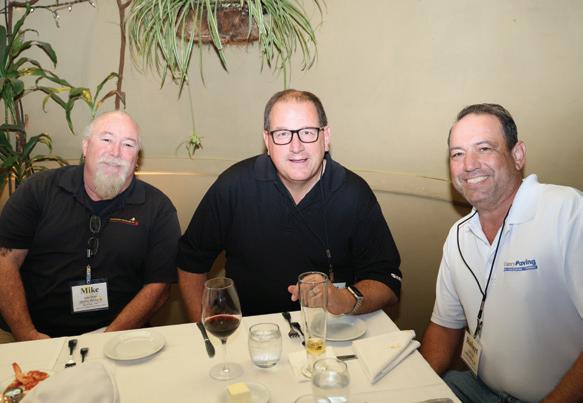
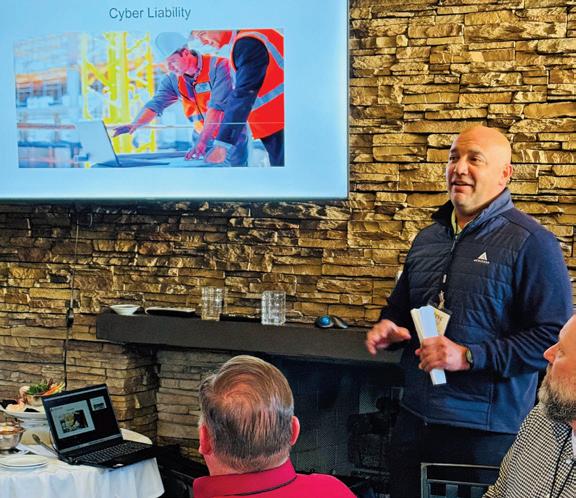

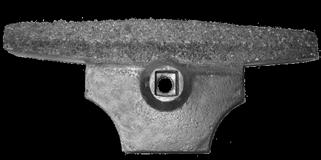

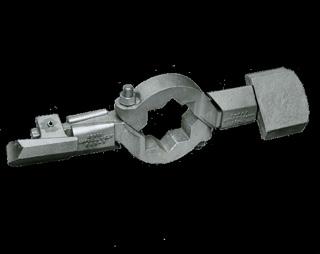
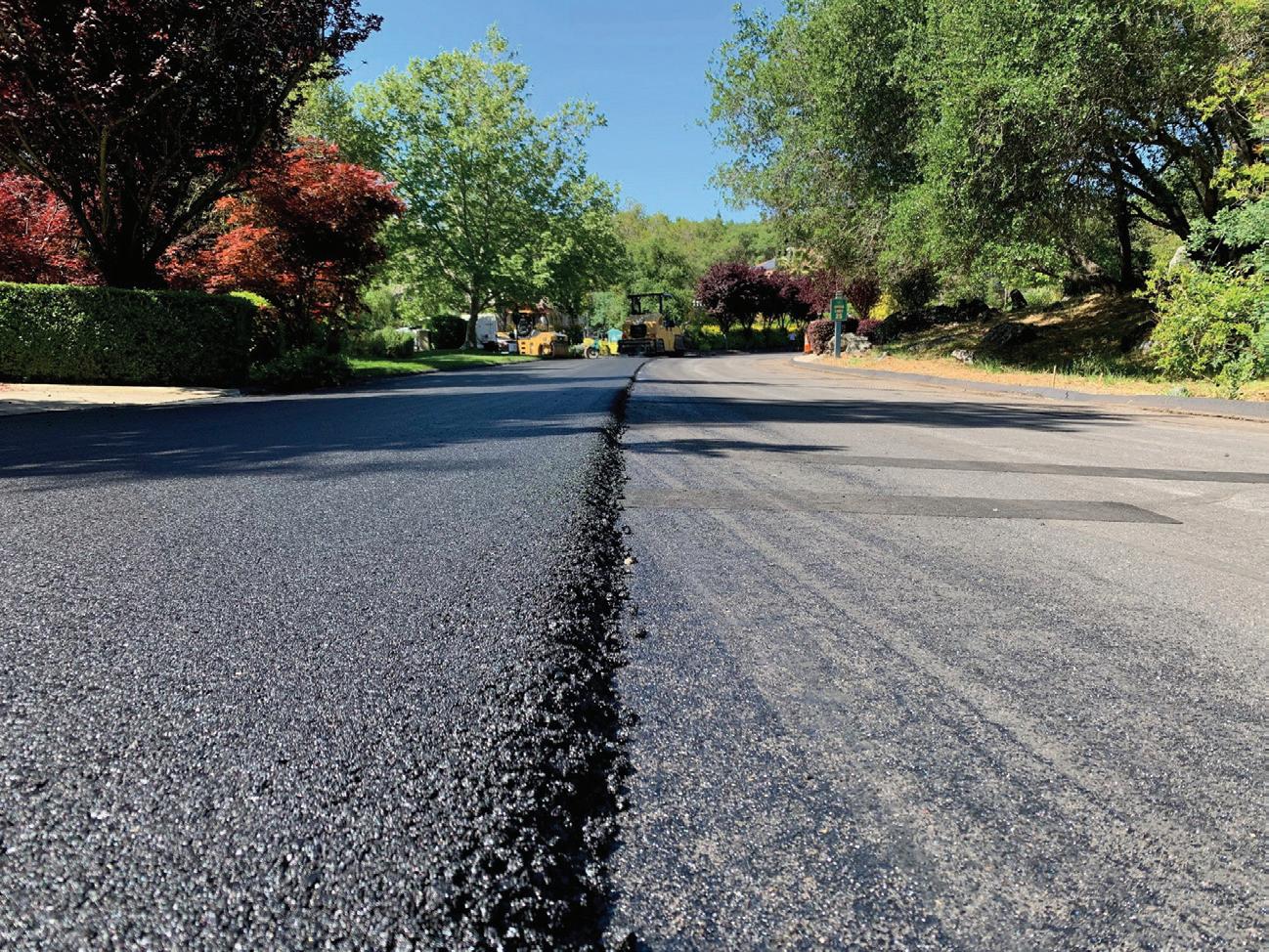

By upcycling end-of-life tires and leveraging their performance properties, SigmaBond extends the life of roads while meeting California's sustainability goals.
• Designed to meet the latest Caltrans and Greenbook speci cations for terminal blend PG-TR and MAC 15/10
• Only terminal blend PG-TR binder and ARHM that routinely includes more than 25% RAP
• Reduces surface wearing course thickness without sacri cing performance
• Enhances pavement marking contrast due to coloration of carbon black
• Use in all dense-graded, gap-graded and open-graded asphalt rubber mixes
Learn more about the bene ts of rubberized asphalt. Watch our groundbreaking webinar series, Back to Black, to hear from asphalt experts in California and beyond.
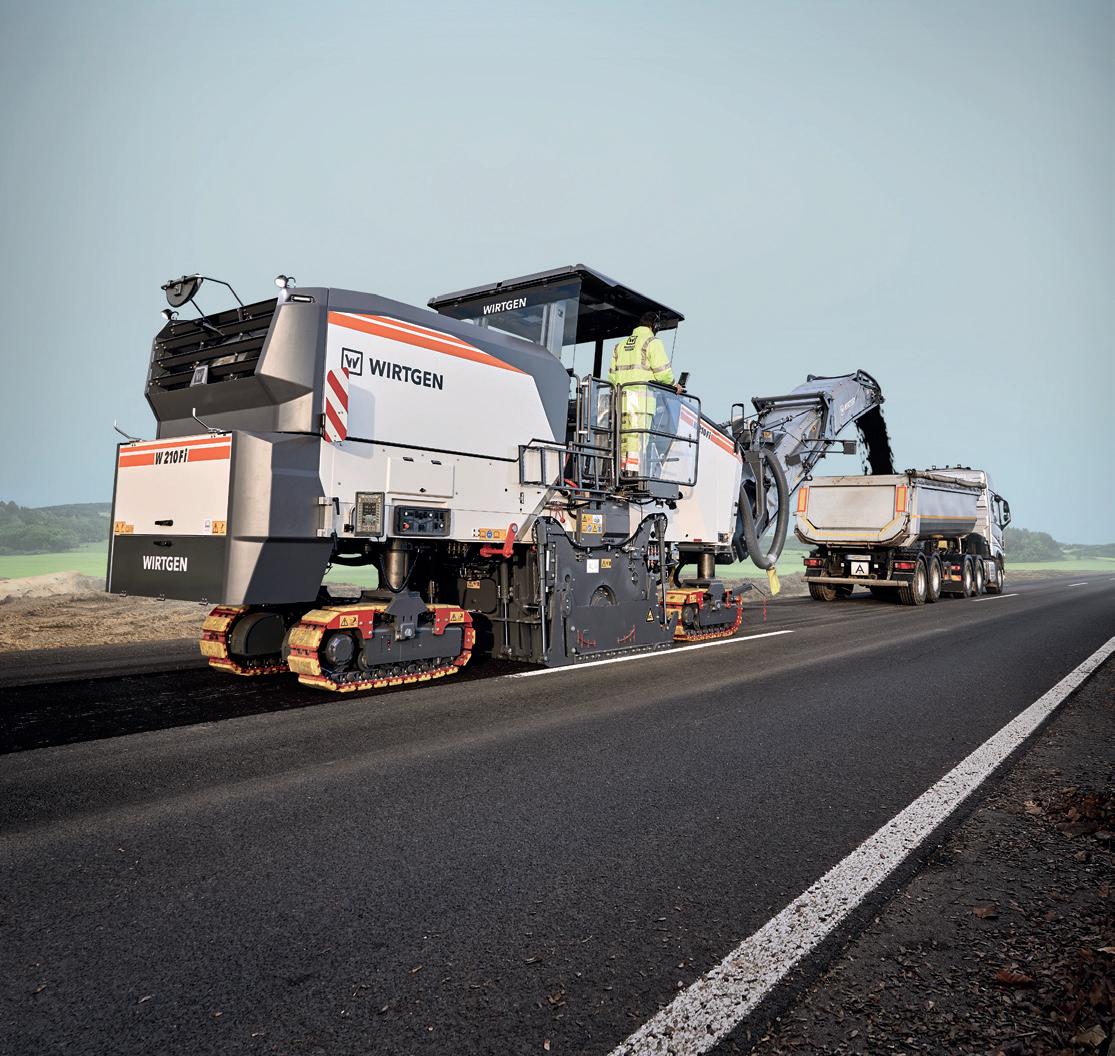
IN NOVATI V E: WIR TGEN ’ s new gener ation of large milling machines uses the lates t advancement s in technolog y to make milling easier for the oper ator, and oper ation of the cold milling machine more cos tef fec tive In addi tion, the machine’s produc tion and resul t s are unpar alleled and c an be doc umented at the touch of a bu t ton T his is made pos sible by c u t ting - edge engineer ing, a pas sion for genuine advancement , and amazing c us tomer s who share their ex per ience wi th us so that we c an develop innovative solu tions toge ther.